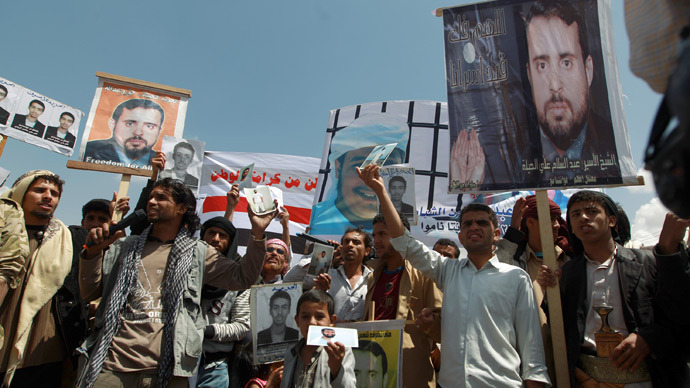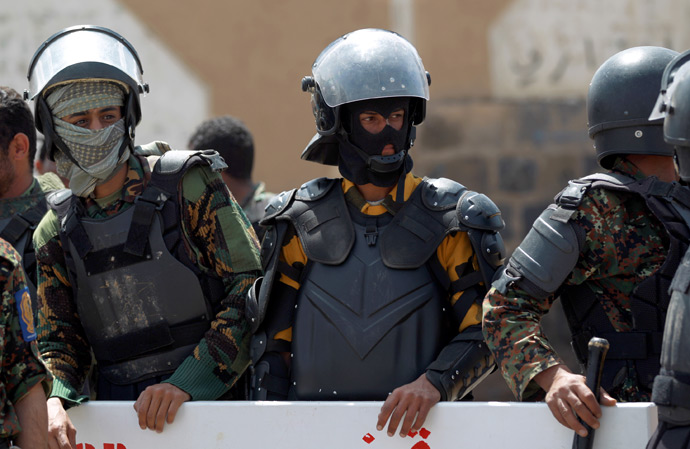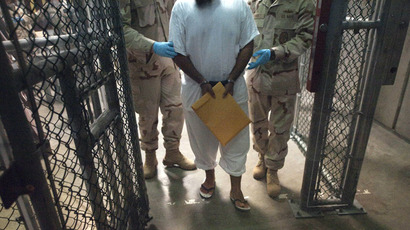Yemenis demand release of Gitmo-held compatriots

Around 250 demonstrators gathered outside the US embassy in Yemen capital Sanaa to plea for the extradition of their countrymen held in Guantanamo. Yemenis make up more than half of all the inmates at the detention center.
Protesters stood outside the gates, holding placards of the detainees, many of whom have been held at the US facility in Cuba for more than a decade after being captured in Afghanistan in the aftermath of the invasion by the Allies following the September 11 attacks in 2001.
Relatives of the prisoners then passed on a letter to an embassy official, who accepted it, before retreating inside the building. Neither the embassy nor the demonstrators made its content public.
Yemeni officials and human rights activists have persistently demanded the US hand over more than 80 compatriots still held in Guantanamo. 58 of the men have been acquitted of any terrorist connections.
A hunger strike involving scores of inmates has been on-going at the detention camp since early February.
The strike originally began as a protest against security measures at the facility – such as the seizure of personal belongings – and has broadened into a protest against indefinite detention. Lawyers for the detainees say that some of them have compromised their health, while others are being force fed by their captors.

So far, the return of Yemeni inmates has been prevented by quibbles over rehabilitation costs and legal obstacles on the US side.
For the past two years, the US Secretary of Defense has had to sign a waiver promising that any inmate released from Guantanamo will not engage in terrorist activities, following the involvement of several former inmates in terrorist operations.
Meanwhile, Yemen has undergone political upheaval, and struggled with one of Al-Qaeda’s most powerful offshoots, known as Al-Qaeda in the Arabian Peninsula, casting doubt on whether it will be able to monitor ex-detainees.
Said Ali al-Shihri, the second-in-command of Al-Qaeda in the Arabian Peninsula, who was killed earlier this year, was himself held in Guantanamo for six years before his release, upon which he quickly returned to Yemen and took up arms.
Another hurdle has been the cost of a rehabilitation program for
the former prisoners. Yemeni media has reported that former
President Ali Abdullah Saleh, who was overthrown after a string of
protests in 2011, demanded $200 million for the program, a bill the
US refused to foot. Negotiations with the new government have been
on-going, but so far inconclusive.















